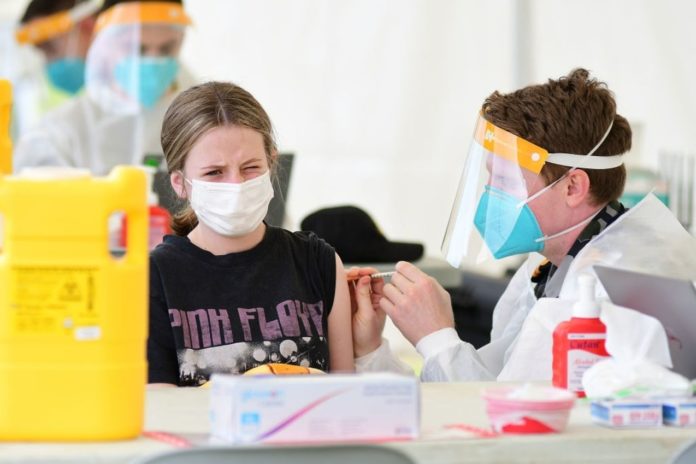After being vaccinated against COVID-19, Singaporean specialists discovered antibodies effective against several variants of SARS-CoV-2.
Researchers from Duke-NUS Medical School and the National Centre for Infectious Diseases (NCID) discovered that 2003 SARS survivors who received the Pfizer-BioNTech mRNA vaccine developed highly potent functional antibodies capable of inactivating not only all understood SARS-CoV-2 variants of concern (VOCs), but also other animal coronaviruses with the possibility of causing human disease.
This study, reported in the New England Journal of Medicine, is the first to show such cross-neutralizing reactivity in people, and it raises hopes for the development of an efficient and broad-spectrum next-generation vaccines against several coronaviruses.
One subgroup of the coronavirus family uses the ACE2 molecule to enter human cells. This category includes SARS-CoV-1 and SARS-CoV-2, as well as a variety of coronaviruses found in bats, pangolins, and civets. While the exact mode of transmission is unknown, these viruses have the potential to spread from animals to humans and spark the next pandemic. Sarbecovirus is the name given to this group of viruses as a whole.
To test their theory, the researchers enlisted the help of 8 persons who had recovered from SARS-CoV-1, the virus that caused the 2003 SARS pandemic, as well as 10 healthy people and 10 COVID-19 survivors. They next compared the immunological responses of the three groups before and after the SARS-CoV-2 vaccine vaccination.
They were particularly interested in whether the neutralising antibodies created in the SARS-Vaccinated group might eliminate both SARS-CoV-1 and SARS-CoV-2 viruses, as well as other sarbecoviruses, including possibly zoonotic sarbecoviruses seen in bats and pangolins.
The researchers used an upgraded version of the surrogate viral neutralisation test (sVNT) developed by Duke-NUS in early 2020. Prof Wang and his colleagues developed the sVNT assay, dubbed cPassTM, which has been approved for Emergency Use by the US Food and Drug Administration to detect SARS-CoV-2-specific neutralising antibodies in human sera following infection or immunisation.
Prior to vaccination, SARS survivors were found to have neutralizing antibodies to SARS-CoV-1, but not to SARS-CoV-2.
After receiving two doses of the mRNA vaccine, all patients showed high levels of neutralizing antibodies against both coronaviruses.
Scientists emphasized that this is the first proven case of cross-neutralizing antibodies against various coronaviruses.
“Our study points to a novel strategy for the development of next-generation vaccines, which will not only help us control the current COVID-19 pandemic, but may also prevent or reduce the risk of future pandemics caused by related viruses,” said Professor Wang Linfa from Duke-NUS EID program and senior corresponding author of the study.
Photo by Belinda Soole/Getty Images
